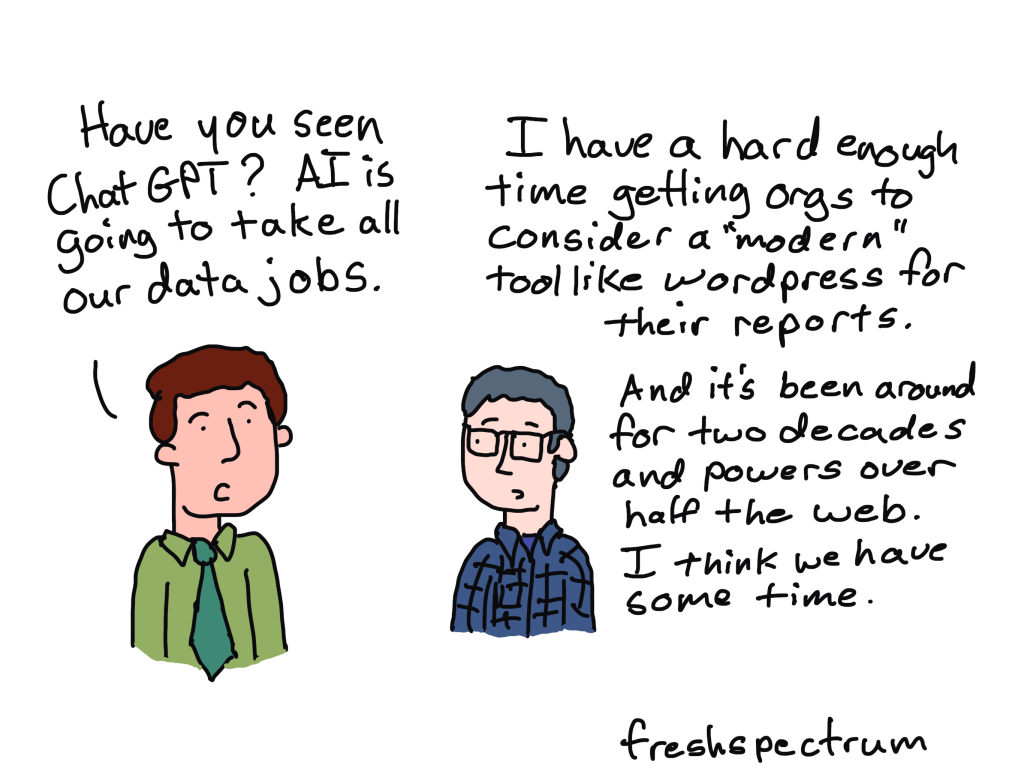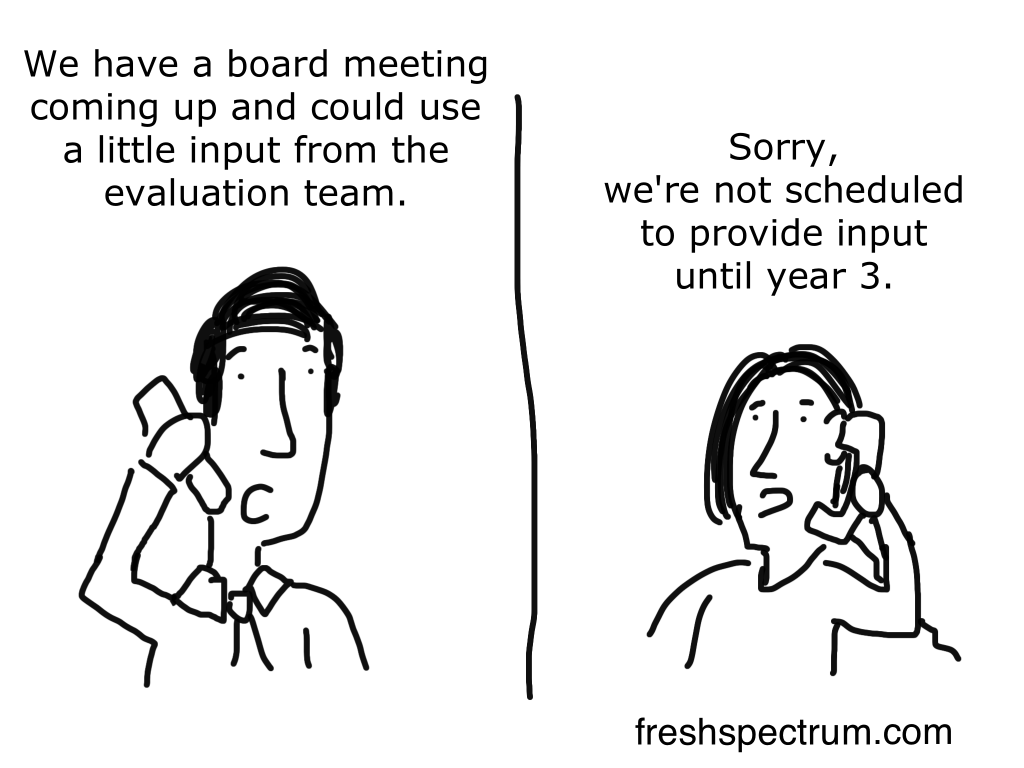This is an Eval Central archive copy, find the original at freshspectrum.com.
Do you remember the early days of social media?
Back then there were a lot of bloggers, marketers, and other digital communicators talking about how social media platforms were conversational. Less broadcasting, more back and forth.
For whatever reason, in the research and evaluation reporting world, that message never really stuck. We still broadcast our reports way more than start conversations. I think we can do better.

Digital media channels are conversation platforms.
Every time I publish a blog post I send an email out to those who signed up here on this site.
If I were mass mailing a paper newsletter, I would not expect to receive a response. But with an email newsletter a follower can just click reply in their email program and give their thoughts. Or they can go to my blog and leave a comment. Or they can visit the LinkedIn post which also goes along with my blog and hit the reply button there.
This is something I totally encourage. I try my hardest to reply to every single blog comment, LinkedIn reply, or email. I love when a blog post sparks a conversation, even if it’s just a little one.
But when was the last time you wrote a report in a way that attempts to elicit an actual response? And if you’ve never tried to elicit a response with a report, why not?
We have access to far more information than we can possibly share.
No single report is ever going to tell the full story.
As evaluators and researchers we have access to lots of information. Some of it is collected as part of our work. Other potentially useful information exists within, or just beyond, our reach.
There is no way to communicate everything. And trying to communicate everything is both way too much work and incredibly ineffective.

Good conversations require making choices.
I used to say that we should switch to the verb form of report instead of the noun. The noun report is that boring long pdf nobody will ever actually read. The verb form is about ongoing action.
But I think it might be more useful to say that reporting is a conversation. Because a conversation requires at least two people, and thinking of reporting like a conversation makes you think about that other person.
Do you show up and dinner parties and spend long periods of time talking about methods then drone on about initial findings without adding any interesting context? If yes, you probably don’t get invited to too many dinner parties.
A good conversation is always tailored to the audience we’re speaking with at the time. You try to make things interesting for your conversation partner, based on what you know about that person. It means making choices.
A good modern report will do the same thing.
Holistic reporting strategy.
I’ve been thinking a lot about reporting lately. Which, for anyone who follows this blog regularly, is totally obvious.
I think we make things too hard on ourselves. Modern reporting shouldn’t take more time than traditional reporting. Even if you’re producing more reports.
We just need to approach it differently.
How, you may ask? I call my way a holistic reporting strategy.
But to go into more depth, that’s going to take a longer blog post. Stay tuned.